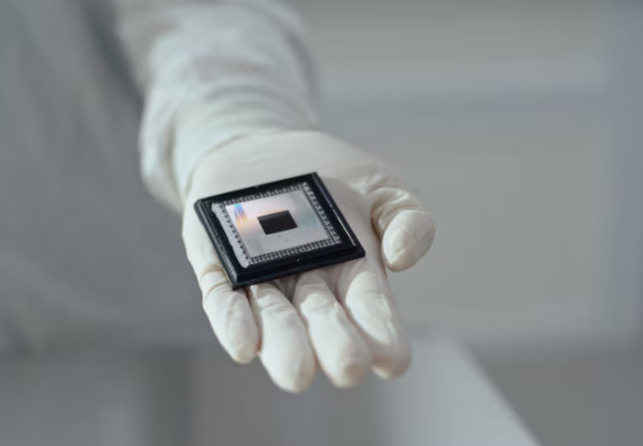Shares of Alphabet Inc., Google’s parent company, rose nearly 5% on Tuesday following the announcement of a groundbreaking quantum computing chip called “Willow,” Reuters reports.
The new chip represents a significant leap forward in quantum technology, addressing one of the field’s most persistent challenges — error reduction.
Unveiled on Monday, the Willow chip demonstrated its power by solving a complex computational problem in just five minutes, a task that would reportedly take a classical computer longer than the entire history of the universe to complete. This achievement highlights the immense potential of quantum computing, which promises speeds far beyond those of traditional silicon-based systems.
A major hurdle in quantum computing has been managing “qubits,” the fundamental units of quantum information. While qubits enable quantum computers to perform highly complex calculations, they are notoriously error-prone. Traditionally, increasing the number of qubits has led to higher error rates, complicating efforts to scale quantum systems.
However, Google says the Willow chip introduces a novel method of linking qubits in a way that reduces, rather than increases, errors as the number of qubits grows. This innovation allows for real-time error correction, a critical step toward making quantum computing more stable, reliable, and commercially viable.
“While there are no immediate practical uses for Willow, its potential impact on science, medicine, and finance could be profound,” said Thomas Hayes, chairman and managing member of Great Hill Capital. “By exponentially reducing errors, Willow could pave the way for significant breakthroughs and discoveries across various industries.”
Alphabet’s achievement places it at the forefront of the quantum computing race, where it faces stiff competition from companies like Microsoft and Quantinuum. Earlier this year, Microsoft and Quantinuum announced progress toward making quantum computing more reliable, a crucial step in commercializing the technology. Quantum computing is seen as a game-changer for industries such as pharmaceuticals, logistics, and cryptography, thanks to its potential for processing power that far exceeds classical computers.
Alphabet’s stock was on track for its best day since April, with its share price rising about 5% on Tuesday. So far in 2024, Alphabet’s stock has risen 25%, reflecting strong investor confidence in the company’s technological advancements. As of Monday’s close, Alphabet’s shares were trading at a forward 12-month price-to-earnings (P/E) ratio of 19.58, which is lower than rivals Microsoft (32.03) and Amazon (36.79), according to LSEG data.
While practical applications for quantum computing remain a work in progress, the Willow chip’s potential is undeniable. Experts predict that future use cases could include faster drug discovery, better financial modeling, and advancements in artificial intelligence. By reducing errors exponentially and enabling real-time correction, Alphabet’s latest development could shape the trajectory of the quantum computing industry for years to come.









